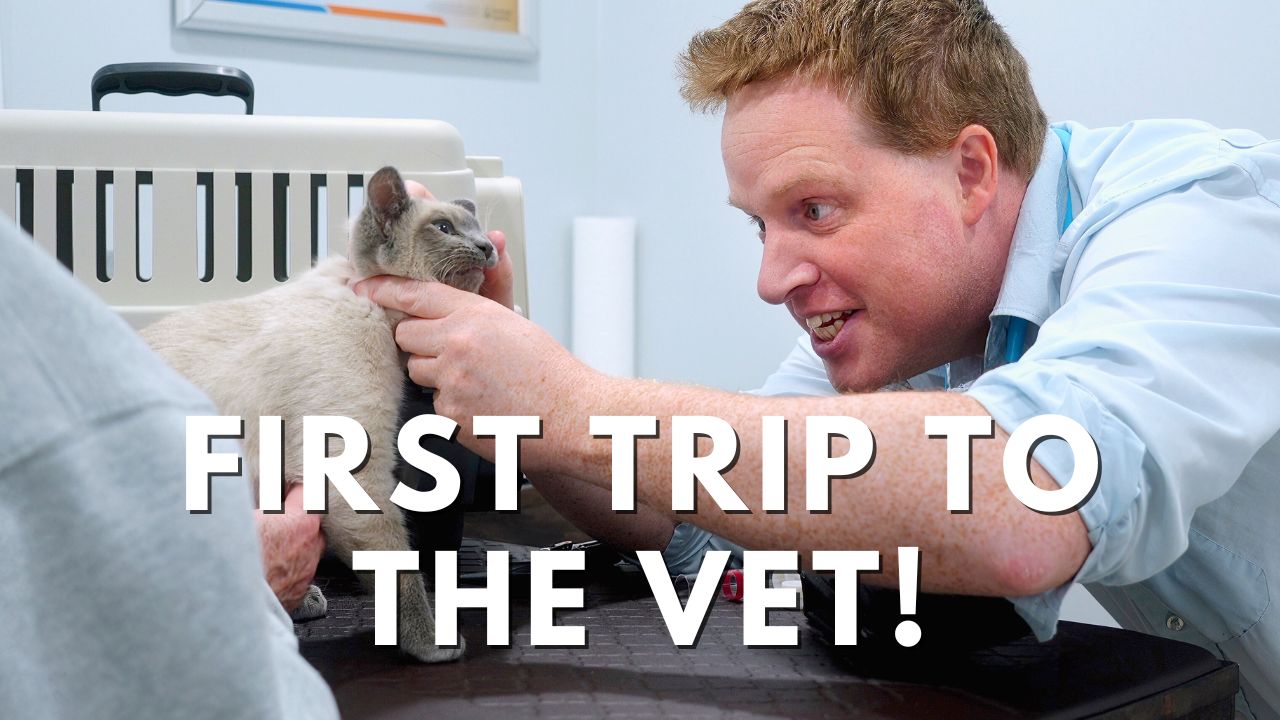
Your Kitten’s First Vet Visit: What to Expect and Why It Matters
Welcoming a new kitten into your home is an exciting time! Those tiny paws and playful pounces bring so much joy. But as a responsible pet owner, one of the most important steps in your kitten’s care is their first visit to the veterinarian. At i-Care Veterinary Hospital, we recently met Phoebe, a sweet kitten with Siamese-like colouring, for her first vet visit. Let’s explore what happens during this crucial appointment and why it’s so important.
Why is the First Vet Visit So Important?
Early veterinary care lays the foundation for a lifetime of health. This visit helps ensure your kitten is developing normally, identifies any early health concerns, and provides necessary preventative care. It’s also an opportunity for you to ask questions about your kitten’s care, such as feeding, spaying or neutering, and vaccinations.
What to Expect During the First Visit
A Warm Welcome
At i-Care Veterinary Hospital, we know how special your first visit can be. Your kitten will be greeted with lots of smiles and gentle handling to help them feel comfortable. Our team loves meeting kittens, just like Phoebe, who quickly became the star of the clinic during her visit!
Thorough Physical Examination
During the first appointment, your vet will conduct a full physical exam to check your kitten’s overall health. This includes examining their:
- Eyes, ears, and mouth
- Coat and skin
- Body condition (weight, size, and muscle tone)
- Heart and lungs
- Abdomen for any unusual lumps or signs of pain
For Phoebe, Dr. Chris Milligan reassured her owner that she was the right size and weight for her age, despite her small appearance. This is a common concern for new pet parents!
Preventative Care: Deworming and Vaccinations
Kittens are vulnerable to parasites and infectious diseases, so their first visit usually includes:
- Deworming treatment: Intestinal worms are common in kittens, and deworming ensures these pests don’t cause health issues.
- Core vaccinations: Phoebe received her first vaccines to protect against panleukopenia, calicivirus, and feline herpesvirus.
Dr. Milligan also discussed vaccinating Phoebe against rabies, which is especially relevant for cats on Vancouver Island. While Phoebe is an indoor cat, Dr. Milligan explained that bats—common in the area—can sometimes find their way inside homes. Indoor cats may occasionally catch bats, posing a potential rabies risk.
Follow-Up Instructions
Lindsey, our Lead Technician, returned Phoebe to the exam room to reunite her with her owner after the treatments. Following Dr. Milligan’s instructions, Lindsey informed Phoebe’s owner that her next round of vaccines should be scheduled in three weeks. This follow-up ensures that Phoebe continues to build strong immunity during her early months.
Discussing Spaying/Neutering
Spaying or neutering is an important part of your kitten’s health plan. Dr. Milligan advised Phoebe’s owner to schedule her spay procedure around six months of age or when she reaches a minimum weight of 2–2.2 kg.
Answering Your Questions
This is your chance to ask any questions you have about your kitten’s care. Topics might include:
- Feeding and nutrition
- Litter box training
- Socialization and behaviour
- Flea and tick prevention
Tips for a Successful First Vet Visit
- Bring medical records: If your kitten came with any records (e.g., from the breeder or shelter), bring them along.
- Use a safe carrier: A sturdy carrier helps your kitten feel secure during the trip.
- Stay calm: Your kitten can pick up on your emotions. Stay positive to help them feel at ease.
How Often Should Your Kitten See the Vet?
Kittens require several visits during their first year. After the initial visit, your vet will schedule follow-ups for additional vaccinations, boosters, and routine check-ups. Staying on top of these visits ensures your kitten is protected against diseases and growing as they should.
Phoebe’s Story: A Model Kitten Visit
Phoebe’s first vet visit was a success! She received a clean bill of health, her vaccines, and deworming, and left the clinic happy and healthy. Her owner now knows what to expect in the coming months, including her next vaccine appointment in three weeks and plans for spaying at the appropriate time. Dr. Milligan’s discussion about rabies vaccination also gave Phoebe’s owner peace of mind, knowing she’s prepared even for unlikely risks like encounters with bats.
Conclusion
Your kitten’s first vet visit is a vital step in their journey to becoming a healthy, happy cat. At i-Care Veterinary Hospital in Coombs, BC, we’re here to support you every step of the way. If you’ve recently welcomed a kitten into your home, don’t delay—schedule their first vet visit today!

No Comments